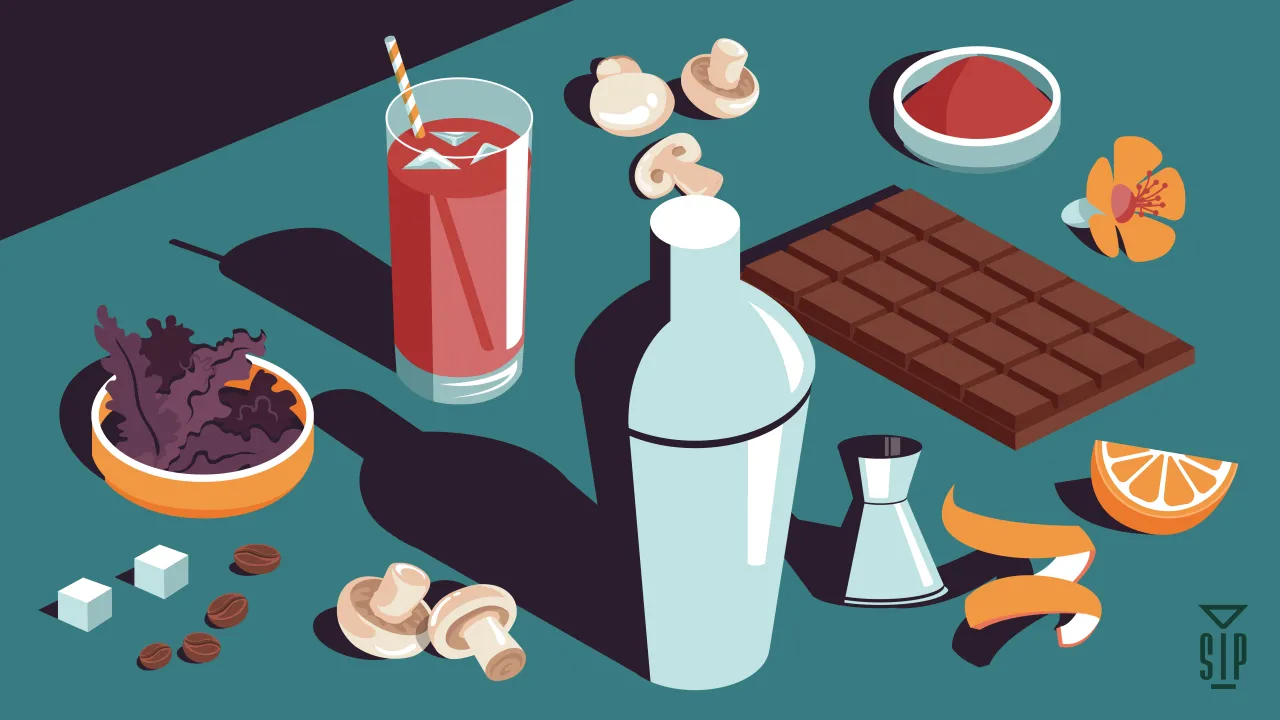Don’t... just focus on proximity
Actually, as fermentation expert Elsa Leblanc observes, the point is not always to get the product closest to you, but to understand how it's made, by who, and how you can source it.
Design cocktails that use wasted food from across your operations
If your venue serves food, there may be an opportunity to repurpose produce that would have been wasted. Look at fruit pulps, peels and spent spices that could be used again as garnish or cocktail ingredients.
Or check in with neighbouring businesses and suppliers, or local foraging groups, to see if they have any excess produce, or byproducts.
Diversify your ingredients
Relying heavily on certain ingredients to make up your cocktails means the supply chain is more weighted towards the impact of producing these products – hello citrus! One of the biggest things a bar can do to support agricultural diversity is to source a wide array of ingredients.
Use fermentation to prolong shelf life of ingredients
Working with seasonal produce means certain ingredients are not readily available fresh from local suppliers all year round. But there are ways in which the availability of flavour can be extended beyond the growing period.
These include fermentation, dehydration, and preservation techniques that allow you to bottle up a flavour for enjoyment year-round.
Find alternative ingredients
If you can’t find what you’re looking for, can you find a seasonal substitution? Or why not think of ingredients available year-round, such as dried seaweeds, botanicals, mushrooms, or frozen fruits.
When it comes to citrus, there are many alternatives for use as acidifiers in drinks, so start experimenting with your own mix of malic, citric, ascorbic and lactic acids and find what’s best for your desired flavour profile.
When you must source out of season, look for certification
You might find imported sugar, coffee, tea, chocolate and exotic fruits impossible to live without.
In these cases, look for products with labels that certify what you’re buying meets social and environmental standards. Common labels include Fairtrade, Rainforest Alliance, Organic, Bonsucro, and Fair Wild.
Key questions to ask your supplier:
- What produce is currently in season?
- Where is this produce grown?
- Who is the farmer?
- Does the farm employ any low invention or sustainable farming methods?
- How long do you expect it to be in season?
- Are there any varieties with a similar flavour profile being produced when this growing season ends?
- Are there any byproducts of this produce which we could re-purpose?
Learn more
Become a pro at local sourcing and sustainability with the Bar World of Tomorrow training.





